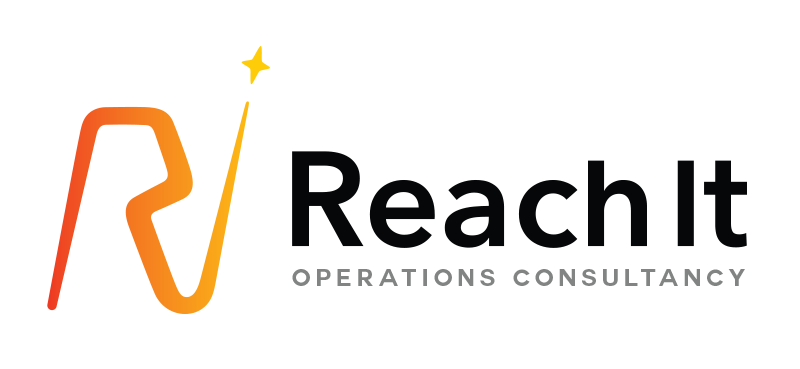Track your stock and improve your returns. Staying on top of your stock data is key!
Effective stock management is crucial for retail companies’ bottom line. That is a fact, irrespective of the volume of SKUs one has. Staying on top of your stock is important even for manufacturing companies where they have stocks of raw materials, works in progress and finished goods ready for the go-to market. Data pertaining to stocks is key to continuously optimise operations, reduce costs and eventually drive profitability.
With over 20 years of experience, we have helped tens of companies set up and refine their stock management practices. Below are several considerations and strategies one should take on board for the smooth running of their stock management function.
Main Challenges of Stock Management
Maintaining the right balance of stock is a difficult task. Keeping too much stock means a lot of valuable capital is tied up. Idle assets are a burden on finance and warehouse space. On the other hand, keeping low stock levels may lead to stockout situations, which in turn will result in loss of customers and sales. The stock balance equation is not that simple, one would need to add to the mix elements such as seasonal fluctuations, supply chain disruptions and multiple locations. Stock management is not straightforward and needs to be well designed.
Leverage Stock Management Software
In this day and age, one would not imagine a business (irrelevant of its size) to run its stock with pen and paper. Guess What? Yes, we do come across instances where stock is managed manually in full or in part.
Investing in stock management software is a step in the right direction to take control of your stock and to build a robust stock management system. Software usually provides real-time visibility into stock levels, enabling you to take informed decisions, as to what quantities to purchase or produce. When introducing new stock management software, we always liaise with clients to look for the best fit based on these main features:
- Stock Level tracking
- Barcode Scanning
- Re-Order Levels Alerts
- Cohesion with Accounting Module / Software
- Reporting Capabilities
It is imperative that guesswork is eliminated and that the system keeps human error to a minimum. Seamless flow of data is another priority topper to ensure different business functions are tightly knit (ex. Finance, stock management, purchasing, sales functions).
Having the right stock management software will improve the overall visibility into your stock and makes it easier to optimise purchasing and/or production to improve your bottom line. Software is, as cliche as it sounds, ‘garbage in garbage out’. Therefore, it is extremely important to have the right processes and procedures in place and all your employees need to be well trained.
High Quality Data is King!
Having a strong stock management software is not enough, if your data is incomplete, inaccurate or siloed across different systems. High quality data is the foundation of an effective stock management system. That’s where data management comes into play. It is of paramount importance to implement a robust data governance framework, wherein you can ensure that your stock data is collected, stored, and analysed in a way that provides maximum value to your business.
From experience we can safely say that the key data management strategies are:
- Centralise your data.
- Clean your data (eliminate errors and incomplete data records, remove duplicates – to maintain a clean and reliable data set).
- Extract trends from your data.
- Integrate your stock management software with your accounting software or ERP (in case of larger companies).
Top notch stock data can serve as a strategic business asset that drives better decision-making, improves operational efficiency, and ultimately improves bottom lines.
Operational Reports are Key.
To make the most of your stock and data management efforts, you need to generate regular operational reports that provide a clear, data-driven view of your stock performance. Key metrics include stock turnover, average days to sell, return on investment, stock value and stock carrying costs.
Having up-to-date reports will help you identify trends, spot anomalies and track key performance indicators. Most software packages nowadays offer customisable dashboards with drill-down capabilities ideal for data analysis. Operational reports are an effective tool to make informed, data-driven decisions about your stock, identify areas for improvement, and ultimately drive better business outcomes.
Outsourcing Stock Takes
Conducting regular stock takes is essential for maintaining accurate stock records, but it can be a time-consuming and labour-intensive task. ReachIt has developed a ‘stock-take outsourcing’ service whereby stock takes are handled entirely by its experienced team. The entire process is handled, from physical stock counts to reconciliation, ensuring that your stock data is accurate and up-to-date in your stock management system.
Optimising Your Operations Through BPR
If you’re looking to take your stock and data management to the next level, consider implementing a business process reengineering (BPR) exercise where current processes are closely analysed, refined and redesigned with the intent of improving efficiency, reducing costs, and enhancing end customer satisfaction. BPR can help improve stock management processes. Such BPR includes:
- Identifying and eliminating redundant or inefficient stock-related processes
- Automating manual tasks like purchase order generation and stock re-ordering
- Optimising your warehouse layout and inventory storage practices (ex. shelving)
- Integrating your stock management software with other critical business systems such as the accounting software.
Through a comprehensive BPR approach, you can radically improve your company’s stock management to achieve long-term growth and profitability.
Learn More. Speak to us today!





